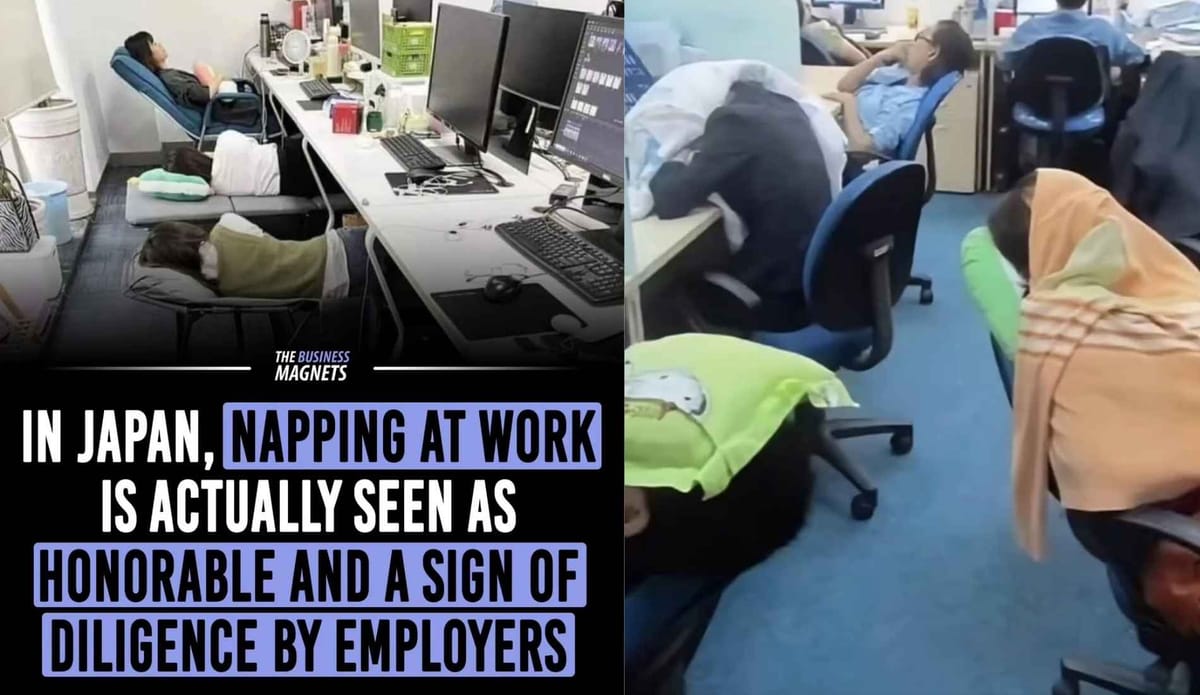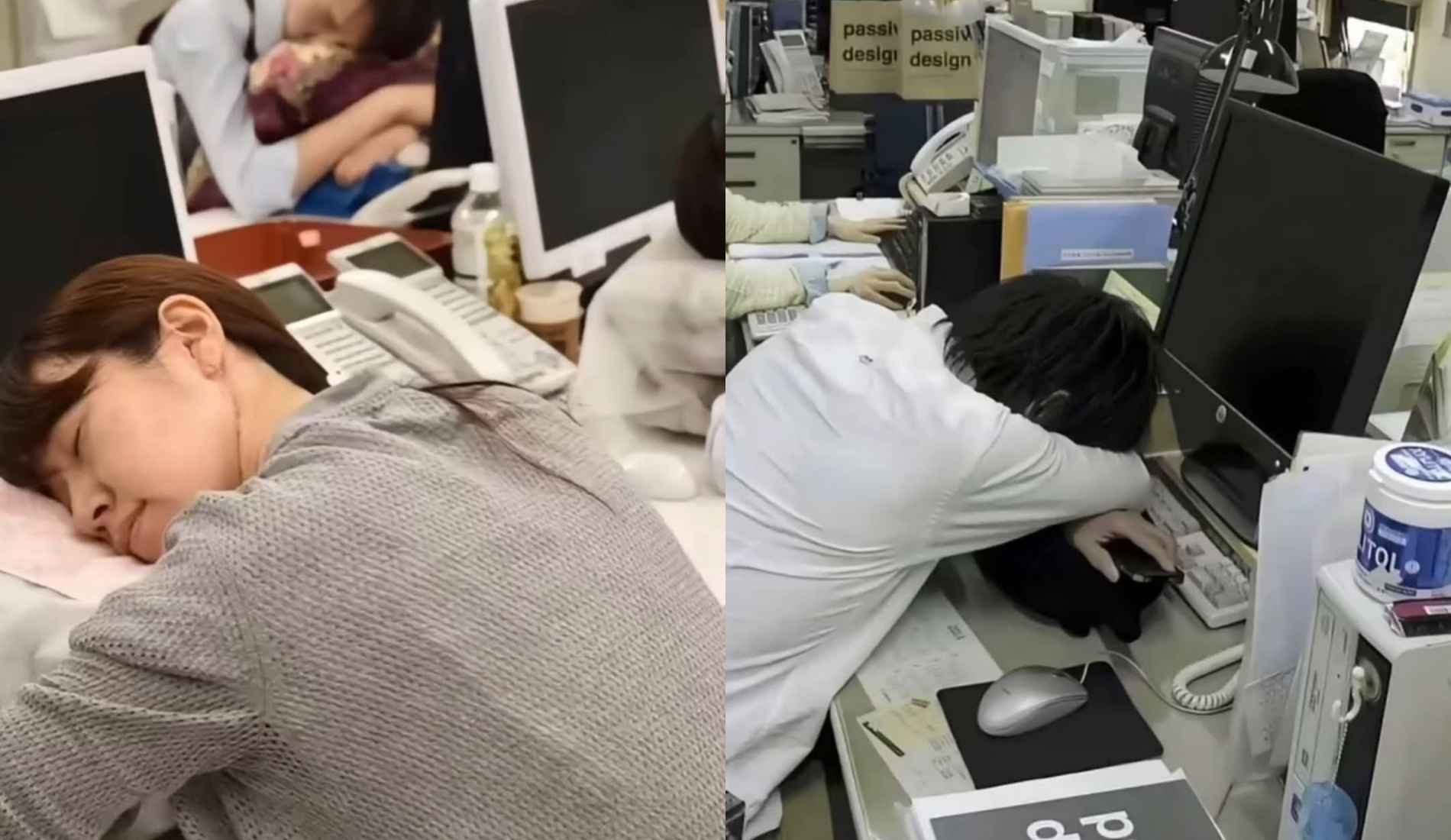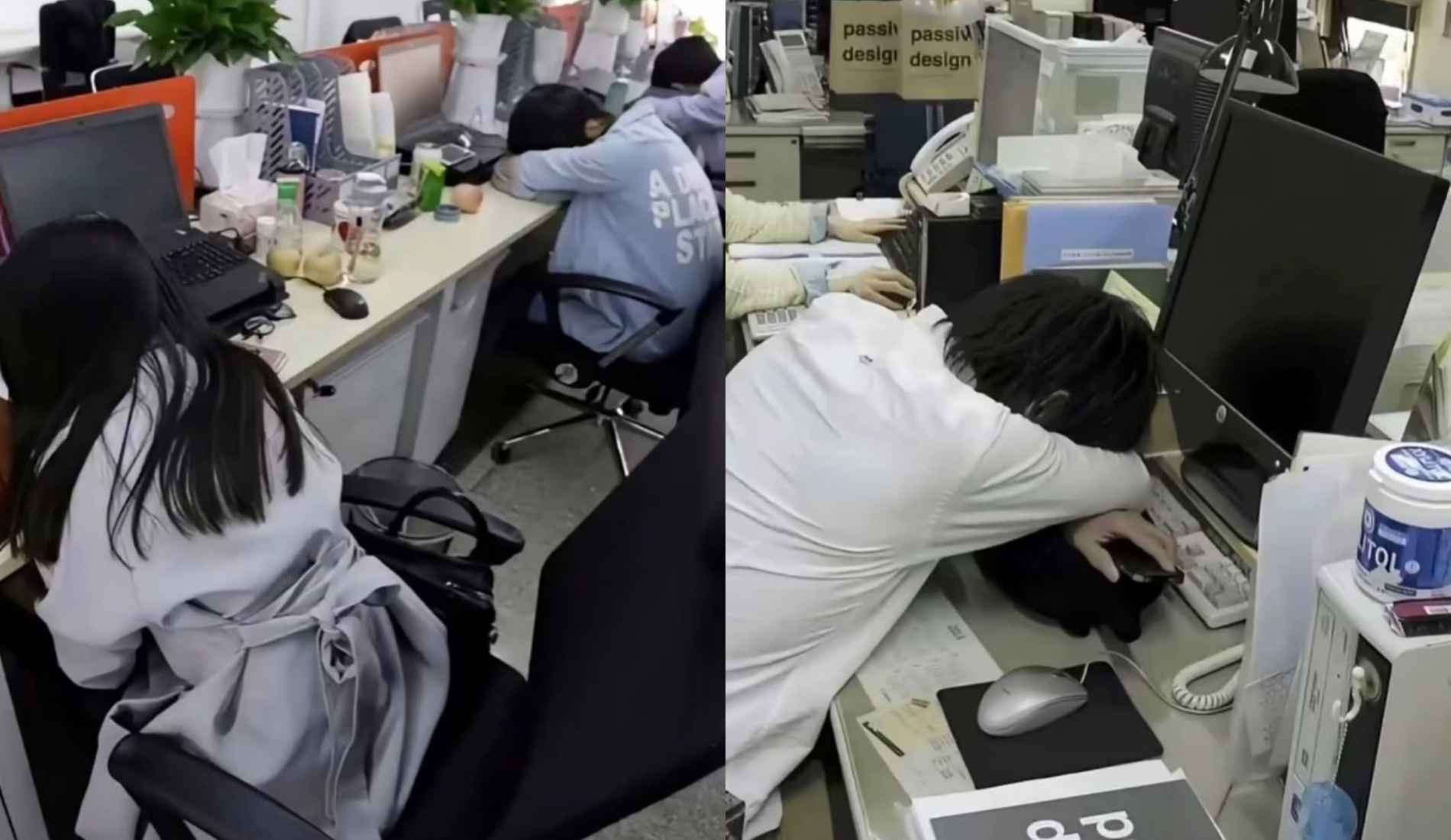The Power of Inemuri: Redefining Productivity Through Rest
In Japan, napping at work is not only accepted but often viewed as a sign of diligence and hard work.

What Is Inemuri?
Known as "Inemuri," this cultural practice reflects the long hours employees dedicate to their jobs. Unlike in some other cultures where napping might be seen as unproductive, in Japan, resting briefly during work hours is considered a natural part of the workday. Employers interpret it as evidence that employees are working so hard they need short rests to recharge. In a culture that places a high value on effort and loyalty to the workplace, Inemuri is seen as a sign of commitment rather than laziness, fostering a more understanding approach to productivity and well-being.

Lessons for the World
As burnout and overwork become global challenges, Japan’s concept of Inemuri presents a fascinating alternative perspective. Rather than punishing fatigue, they acknowledge it as a reality of hard work. This practice highlights the importance of balancing productivity with well-being—a mindset that many modern workplaces desperately need to adopt.
The Science of Napping
Take, for instance, the growing body of research that highlights the benefits of short naps on mental clarity, focus, and creativity. Studies suggest that even a 20-minute power nap can enhance performance and reduce stress. Companies in countries like the United States are beginning to recognize this, with some introducing nap pods and wellness rooms in their offices. These spaces allow employees to rest and recharge without stigma—a concept that echoes the spirit of Inemuri.
Work-Life Integration
Furthermore, Inemuri speaks to a deeper cultural understanding of work-life integration. Unlike rigid boundaries that separate personal time from professional obligations, Japan’s approach reflects a more fluid understanding of human needs. Employees are not robots; they need moments to pause, breathe, and reset to perform their best.

A Lesson for Leaders
For leaders and entrepreneurs, this highlights a powerful lesson: valuing your team’s well-being isn’t just good ethics—it’s good business. A well-rested, motivated workforce is a productive one. Creating a culture where short breaks or moments of rest are normalized can lead to happier, healthier employees and better overall results for your organization.
Rethinking Productivity
It’s also a reminder to challenge traditional notions of productivity. Perhaps the future of work doesn’t lie in squeezing every minute for output but in creating an environment where employees feel supported enough to do their best. By embracing practices like Inemuri, workplaces around the world can redefine what it means to work hard—not just in terms of hours clocked but in the quality and sustainability of the effort.
Finding Your Own Inemuri
As you reflect on your own work habits or those of your team, ask yourself: what’s more important—endless hustle or meaningful progress? The answer may lie in finding your own version of Inemuri—a practice that prioritizes balance, well-being, and long-term success.




